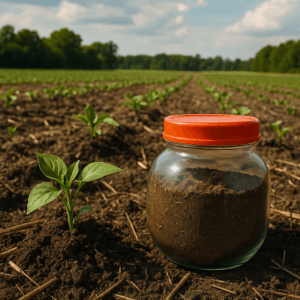As the average age of menopause for Indian women is around 47 years, many struggle with its symptoms while limited resources and societal taboos hinder open discussions regarding their health.
**Breaking the Silence on Menopause: A Growing Challenge for Indian Women**

**Breaking the Silence on Menopause: A Growing Challenge for Indian Women**
Indian women face increasing challenges with menopause due to a lack of resources and societal stigma, highlighting the need for greater awareness and medical support.
Across India, women are silently battling the impacts of menopause, a phase that many feel is overshadowed by stigma and a lack of accessible resources. Studies reveal that Indian women tend to experience menopause at an average age of 47, which is earlier than in many Western countries, potentially leading to a spike in cases of premature menopause, particularly among women aged 30 to 39.
Dr. Ruma Satwik, a gynecologist at Delhi's Sir Gangaram Hospital, emphasizes the urgency of this issue, noting, "In some studies, the average age of menopause in India is 47; this means many women may experience menopause by the age of 44-45." The situation is compounded by nutritional, environmental, and genetic factors that contribute to these early transitions.
While the symptoms of menopause can include severe hot flashes, fatigue, and depression, awareness surrounding the condition remains alarmingly low. Many women, like 43-year-old Sangeeta, feel overwhelmed as they navigate these physical changes while managing multiple daily responsibilities. She shared, “What’s the point of living like this? Sometimes I feel my pain will end when I die,” highlighting the emotional toll menopause can take when left unaddressed.
In urban centers like Mumbai, the challenges persist. TV host Mini Mathur reported that after turning 50, the symptoms of menopause were intense and varied. After failing to find adequate care in India, she traveled abroad for help, discovering the benefits of hormone therapies that significantly improved her quality of life. She points out, “I had to go to Austria to find a doctor who wouldn't negate my symptoms,” illustrating the inadequacy of local healthcare responses.
As India's population of women over 45 is expected to reach 400 million by 2026, the need for improved menopausal care is paramount. According to Dr. Anju Soni, president of the Indian Menopause Society, “Indian women live one-third of their life after menopause,” signifying the importance of comprehensive understanding and resources tailored to this demographic.
Educational efforts are desperately needed, as many healthcare professionals, including primary care workers in rural areas, lack specialized training in menopause management. Activist Atul Sharma highlights the disparity, stating, “Even the nurse who comes here says, ‘Now you will seek medicine for this also?’,” reflecting the prevailing dismissive attitudes around menopause.
Despite the barriers, some women are turning to social media for support and information, discovering insights and resources that traditional medical structures fail to provide. Celebrities like Naomi Watts and Halle Berry are helping to shine a light on menopause in the public sphere, advocating for better understanding and more research into this natural life stage.
Mathur, who is now pursuing further education in the U.S., aims to bridge the gap between available information and healthcare access in India, emphasizing that "we don't have enough brands of estrogen patches and progesterone creams that we need in India."
As the need for awareness and effective treatment options grows, healthcare advocates like Dr. Satwik call for a change. “We need as many talks on menopause or perimenopause as we do on fertility and adolescent health," she urges. By leveraging existing healthcare networks geared toward pregnant women, similar comprehensive care can be extended to menopausal women, promoting a healthier future for all.





















